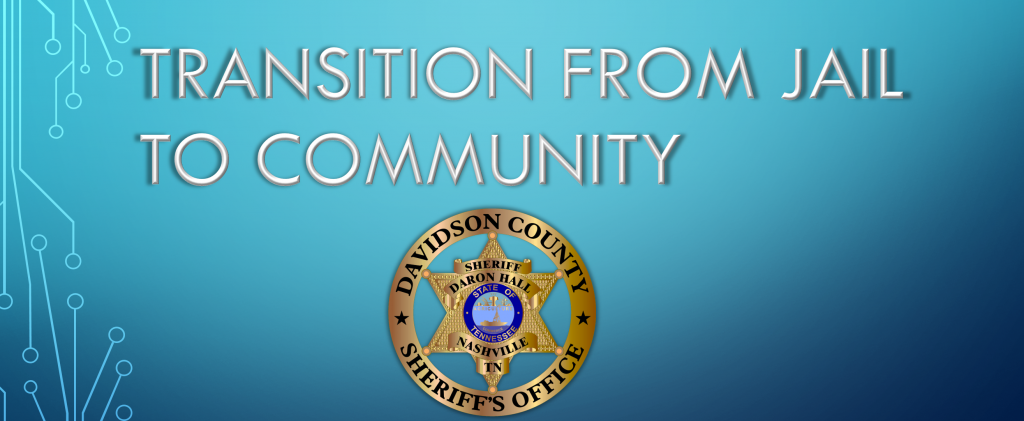
Mission Statement
As an innovative community based program of the DCSO the TJC Reentry Project is a collaborative effort with joint ownership between the local jail and community stakeholders that will strengthen families and homes by reducing recidivism and building safer communities.
Vision
The purpose of DCSO/TJC is to make a positive difference in the lives of offenders, their families and their communities, by providing professional support with one on one relationships. We strive to implement a system of care to achieve their highest potential by providing them with a committed staff, community agencies, caring volunteers, with a high standard of excellence.
Goals
The TJC Re-Entry Project stakeholders will strive together to enhance reintegration and improve public safety. Target outcomes include:
- Reduced recidivism
- Reduced substance abuse
- Reduced homelessness
- Improved health & wellness
- Increased employment
- Increased family connectedness
- Increased systems collaboration
When Davidson County joined the TJC initiative as a learning site, it had a strong history of collaboration between the Davidson County Sheriff’s Office (DCSO) and the community as well as a strong in-jail program operation. Davidson County wanted to build on those strengths by developing a continuum of care for inmates as they transitioned from jail to the community, implementing risk and needs assessments to guide program provision, and collecting and analyzing data on jail-to-community transition performance and outcomes.
As the TJC model was implemented, Davidson County brought together criminal justice and community stakeholders to build a systems approach to jail-to-community transition. They maintained and extended county and city leadership support. Community provider collaboration was ensured through the establishment of the TJC Community Partners stakeholder group; work groups that focus on service needs such as employment and housing; and the creation of an online forum for community partners to share information.
DCSO implemented screening for risk to reoffend and used the data to inform assessment, case planning, and programming. DCSO and its community partners began collecting and reporting data on key items such as the number of offenders assessed at a low, medium, and high risk of reoffending in each jail facility, and inmate program participation both in jail and in the community. In addition, DCSO began assessing inmate needs to target interventions in the jail and identify proper community referrals. Davidson County addressed a key intervention gap by securing training for DCSO staff and community partners in NIC’s cognitive-behavioral Thinking for a Change curriculum. The screening, assessment, and comprehensive release plan continuum was adopted into DCSO policy for all case management, treatment, and correctional counseling staff in spring 2012, a key development in sustaining Davidson County’s TJC progress.
As Davidson County sheriff Daron Hall said in summarizing the experience: “In the past, there was little or no data showing how reentry efforts were working and if offenders were following up in the community. Now, we have data showing that on a continuum-of-care basis, the correctional facilities in collaboration with the community can have a greater impact together than they can independently. As part of our continuum of care, this initiative has assisted in a stronger and more effective relationship with community agencies that provide assistance when offenders are released back into our community. These processes and efforts in the past were somewhat fragmented in their efforts or nonexistent. The TJC initiative has assisted us at every level from arrest, incarceration, and release back into our community.”
Justice Policy Center- Urban.org
